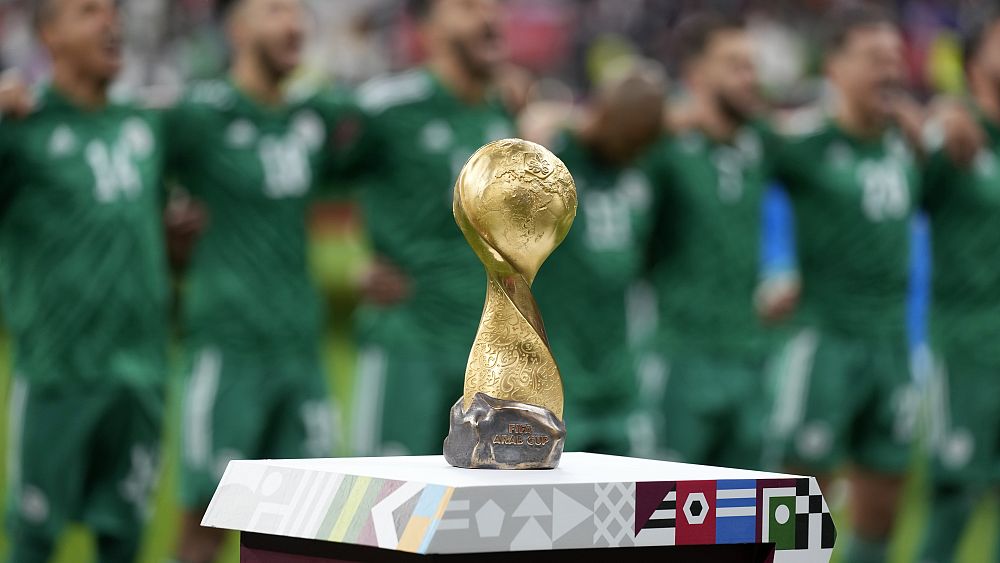
FOOTBALL NOW is a new show that brings to light some of the global game’s biggest issues, challenges, and debates.
Thousands of passionate fans watched Algeria lift the trophy at the thrilling climax of the FIFA Arab Cup in Doha. The African champions secured a 2-0 victory on a nail-biting evening against Tunisia in a tournament that acted as a World Cup test event for Qatari organisers.
With the two North African nations locked at 0-0 at the end of 90 minutes, they continued to battle it out during extra time. The deadlock was broken by an unexpected hero, Amir Sayoud, who had sat out four matches during the competition and came from the bench to curl a sensational strike past goalkeeper Mouez Hassen. Captain Yacine Brahimi later scored Algeria’s second to seal the deal.
The host nation, Qatar, put up quite a fight during the tournament and bowed out in third place after a penalty shoot-out victory over Egypt.
The FIFA Arab Cup saw 32 matches held over 19 days with 83 goals scored at a healthy average of 2.59 per game and included 16 international teams from Asia and Africa. FIFA President Gianni Infantino hopes the competition will play a key role in uniting the region, “It is proof of what football can do; bringing continents together, bringing people together, bringing countries together, bringing fans together, and bringing players together,” the President continued. “This joy, this emotion, which we have been feeling throughout this tournament – not only in Qatar but in the entire Arab World and all over the world.”
A dress rehearsal
Qatar faced one of its biggest challenges as a nation as it gears up to host the 2022 World Cup, which will kick off at Al Bayt Stadium on November 21 and conclude with the final at Lusail Stadium on December 18.
It will be the first World Cup in the Middle East and also the most compact as fans will be able to attend more than one game a day during the opening stages due to the stadiums being in close proximity to Doha.
The Arab Cup allowed the testing of these operations in matches as well as the introduction of Fan IDs and a local contract-tracing application in six of the stadiums that will host matches during next year’s FIFA World Cup.
Game-changing tech
Football is looking to the future and the Arab Cup was a great event to test it. FIFA trialled its new semi-automated tech, which uses artificial intelligence and data to automatically notify the video assistant referee, VAR, if it spots a potential offside in real-time.
During the group stage, a UAE goal was disallowed against Mauritania using this tech but how does it work?
- Cameras were positioned on the roof of the stadium to follow players and track up to 29 data points at 50 times per second
-
Artificial intelligence records and processes the data in seconds.
-
The final decision is given by VAR
VAR itself has had a rocky ride since its introduction in matches with only 26% in favour of keeping it, according to a survey by the Football Supporters’ Association back in June 2021. Offside decisions have been among the most controversial but it is here to stay.
Pierluigi Collina, FIFA’s chief refereeing officer said, “VAR has had a very positive impact in football. We can say that the number of major mistakes has dramatically reduced, but nevertheless, there are areas where it might be improved and certainly offside is one of them.”
The three-week Arab Cup was a successful test event for Qatar. The quarter-final between Qatar and the United Arab Emirates drew 63,439 fans alone, the single highest attendance ever for a sporting event in Qatar. The stadiums looked stunning, the organisation was on point and Qatar has shown the world it will be ready to host the most-watched sporting event on the planet in 2022.
